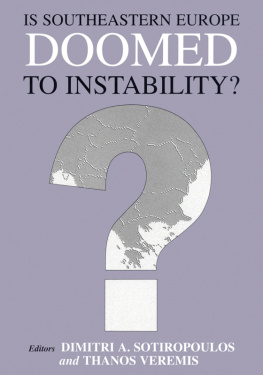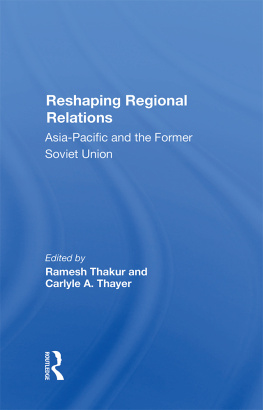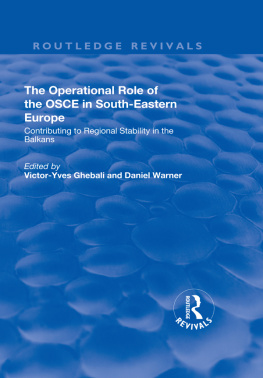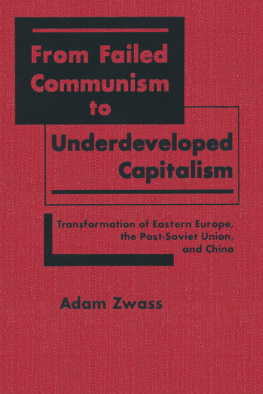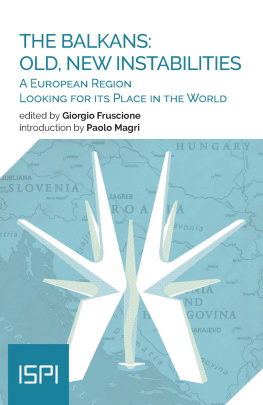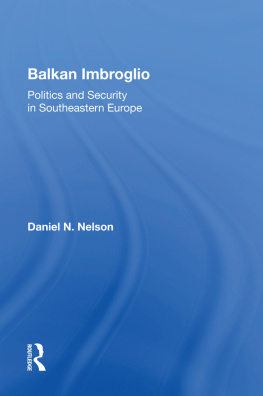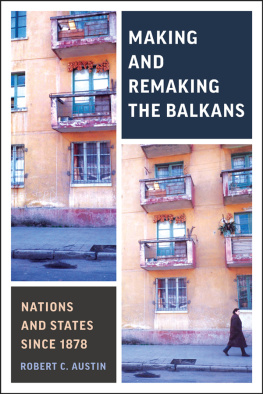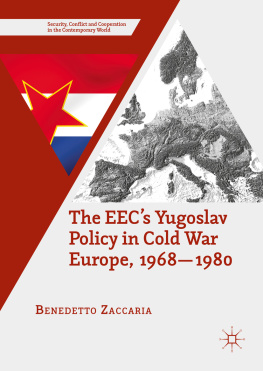IS SOUTHEASTERN EUROPE DOOMED TO INSTABILITY? A REGIONAL PERSPECTIVE
Books of Related Interest
The Political Economy of Regionalism
Michael Keating and John Loughlin (eds.)
The Kosovo Tragedy: Human Rights Dimensions
Ken Booth (ed.)
Peacebuilding and Police Reform
Tor Tanke Holm and Espen Barth Eide (eds.)
First published in 2002 by Frank Cass Publishers
This edition published 2012 by Routledge
2 Park Square, Milton Park, Abingdon, Oxon OX14 4RN
711 Third Avenue, New York, NY 10017
Routledge is an imprint of the Taylor & Francis Group, an informa business
Copyright 2002 Frank Cass & Co. Ltd.
British Library Cataloguing in Publication Data
Is Southeastern Europe doomed to instability? : a regional perspective
1. Democratization Balkan Peninsula 2. Human rights Balkan Peninsula 3. Internal security Balkan Peninsula 4. Balkan Peninsula Politics and government 1989I. Veremis, Thanos II. Sotiropoulos, Dimitri A.
320.949609049
ISBN 0 7146 5289 X (cloth)
ISBN 0 7146 8256 X (paper)
Library of Congress Cataloging-in-Publication Data
Is southeastern Europe doomed to instability? : a regional perspective / editors, Thanos Veremis and Dimitri A. Sotiropoulos.
p. cm.
This collection first appeared as a special issue of the Journal of southeast European and Black Sea studies, 2/1 (January 2002). Includes bibliographical references and index.
ISBN 0-7146-5289-X (cloth : alk. paper) ISBN 0-7146-8256-X (pbk. : alk. paper)
1. Balkan PeninsulaPolitics and government1989-1. Veremes, Thanos. II. Soteropoulos, Demetraes A., 1960- III. Journal of southeast European and Black Sea studies.
DR48.6 .I8 2002
320.9496dc21
2002001276
This group of studies first appeared as Is Southeastern Europe Doomed to Instability? A Regional Perspective, a special issue of The Journal of Southeast European and Black Sea Studies, 2/1 (January 2002)
ISSN 1468-3857, published by Frank Cass and Co. Ltd.
All rights reserved. No part of this publication may be reproduced, stored in or introduced into a retrieval system, or transmitted, in any form or by any means, electronic, mechanical, photocopying, recording or otherwise, without the prior written permission of the publisher of this book.
Dimitri A. Sotiropoulos and Thanos Veremis
The Purpose of this Volume
The greatest peril of the states of Southeastern Europe (SEE) states that are now more numerous and individually less important to the West than during the Cold War lies in their being neglected and isolated. To avoid political isolation and to enhance their chances to attain economic stability and social cohesion, Southeast European states need to restructure and re-focus their policies in order to address the problems of the region. This entails their political and economic integration, albeit in a gradual fashion, into the European Union. It also calls for their cooperation on a regional basis in order to overcome the twin dangers of being perceived as endemically unstable and of being excluded from the European and Euro-Atlantic processes.
If the principal objective of local SEE actors is to formulate strategies and tactics, which will serve the above aims, aid from and interaction with extra-regional actors is irreplaceable. However, a less obvious point is that local perspectives must also be voiced and offered to an international audience for consideration. The purpose of this collected volume is to air concerns of experts and intellectuals coming from the region of SEE. Such a concerted effort includes both an analysis of recent developments and a presentation of findings and recommendations that international observers and policy makers may find useful. There is, after all, local knowledge in the anthropological sense of the term of and about SEE that governments and civil society organizations involved in the area may want to consider seriously. The point is to take into account political and scholarly work that is already being done in the region and to build on it by providing a Southeast European perspective.
At a time when Western values and methods are questioned as a result of NATOs involvement in Kosovo, of the simmering tensions in FYR of Macedonia (FYROM) and of the dangers posed to the integrity of Bosnia and Herzegovina several years after the Dayton and Paris accords, it is important to pause and re-think the role of the international community and its major institutions as well as the role of regional and local actors. The idea is not to counter-pose the international to the regional actors, but to underline the role of the latter in limiting any reticence in SEE societies towards accepting Western-inspired notions of democracy and civil society, as well as standards of employment conditions, income and welfare provision. We try to apply such notions and standards in SEE in the next section of this introduction, emphasizing the interplay of international and regional actors.
Enduring Commonalities of Southeast European States
The peaceful and democratic political transition in the Federal Republic of Yugoslavia (FRY) in the autumn and winter of 2000, the ethnic tensions in FYROM at the beginning of 2001, the rivalries that surfaced again in Bosnia and Herzegovina in the early spring of 2001, and the peaceful first elections in Kosovo in autumn 2001, show that there are both positive developments and recurrent sources of instability in SEE.
It is obvious that changes at the national level are often integrally linked with developments at the level of international and foreign policy. This is particularly true in the case of FRY, where the new political leadership, which emerged in late 2000, has to deal with the usual problems of transition from authoritarian role and simultaneously meet the challenges of the ongoing process of Yugoslavias disintegration. Clearly, domestic changes in FRY affect and are affected by developments in Montenegro, FYROM and Kosovo. Furthermore, other states in the region will have to take into account the emergence of FRY from almost a ten-year-long political and economic isolation a trend that may influence their bilateral actions as well as their strategies towards the international community.

